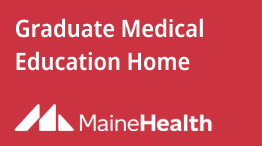 |
The Graduate Medical Education (GME) Home serves as a central repository for GME: Updated policies, frequently requested forms, links to important resources, acknowledgments and congratulations, important communications and all-things GME. |
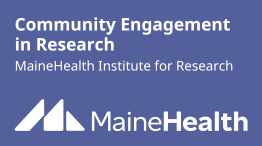 |
Community Engagement in Research is a library of resources developed by the Northern New England Clinical and Translational Research Network (NNE-CTR) Community Engagement and Outreach Core for the purposes of supporting Community Engagement in Research across Northern New England. |
 |
The Healthcare Improvement Guide includes tools to help you apply practical skills for health care improvement, grounded in the science of health care delivery. Topics include Learning Healthcare Systems, Improvement Science, Patient Safety & Diagnostic Error, Population Health & Health Equity, and Leadership. |
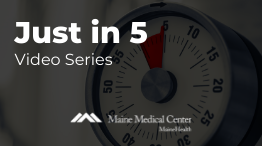 |
Welcome to the Just in 5 Video Series resource. We will be posting new just-in-time teaching videos that are 5 minutes long here monthly covering a variety of important wellness topics. |
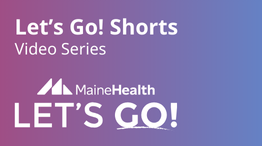 |
Let’s Go! Shorts includes short videos (<5 minutes) here monthly addressing the issues dealing with the disease of obesity. New videos are posted monthly. |
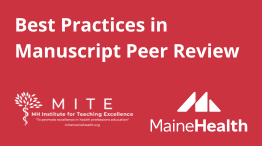 |
The purpose of MITE Best Practices in Peer Review is to serve as a resource for health professionals who are serving or wish to serve as peer reviewers of the biomedical literature. |
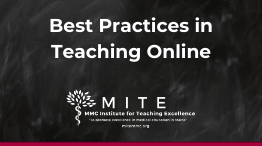 |
The MITE Best Practices in Teaching Online course serves as a resource to help in delivering education primarily online. Check back often, as we will be adding new resources as they are available. |
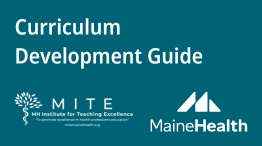 |
The MITE Curriculum Development Guide is based on David E. Kern’s Curriculum Development for Medical Education: A Six-Step Approach. |
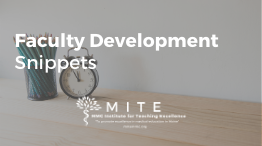 |
The MITE Faculty Development Snippets resource includes collection of short PowerPoints (maximum of 10 slides) that focus on various faculty development topics of interest. This collection will grow over time. |
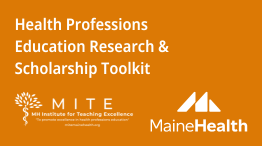 |
The overall aim of the MITE Health Professions Education Research & Scholarship Toolkit is to provide a collection of materials to support educators who are pursuing health professions education research and scholarship. It is our hope that this will aid you to:
- Promote scholarly activity among health professions educators.
- Encourage advance planning to enhance dissemination opportunities.
- Understand principles of data analysis and interpretation from education research.
- Evaluate and apply education research methods.
|
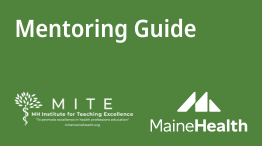 |
The MITE Mentoring Guide introduces learners to approaching mentor/mentee relationships. In this resource you will find 7 topics across the spectrums of mentorship. These topics include short introductory videos (<5 minutes), relevant literature, online resources and infographics. It is our hope that this resource will serve as a helpful tool in your development as a mentor. |
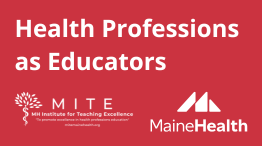 |
The MITE Physicians as Educators curriculum is intended for those teaching in the clinical setting, regardless of background, type and/or level of learner. The curriculum consists of 8 modules led by a subject matter expert in the MMC Department of Medical Education. Review of the curriculum is completely online and self-paced. Curricular content includes short videos by subject matter experts at MMC, peer-reviewed literature, worksheets, and infographics. There are no submissions required by learners in this course, it is meant to act as a central resource for you to improve your teaching. |
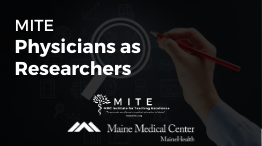 |
The MITE Physicians as Researchers course is meant to be an open platform to help guide and provide resources for conducting a research project. Each module provides a series of information through video lectures, articles, or slideshows that will allow residents to learn or refresh their understanding of research methods as they conduct their research, making the process more effective and efficient during their time at Maine Medical Center. |
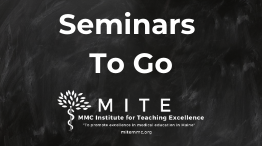 |
MITE Seminars To Go is an interprofessional faculty development opportunity for individuals and healthcare teams to select specific educational topics of interest. This seminar series was created because a faculty development system should include a variety of program offerings to suit the needs of busy clinicians. Clinicians may also have specific interests in educational topics. Learning as an interprofessional group and/or team can facilitate interprofessional collaboration. |
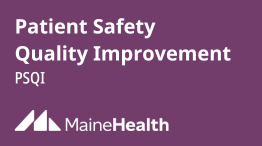 |
The Patient Safety Quality Improvement (PSQI) course represents a minimum threshold education for all residents and fellows. Your Program Director will provide you with an outline of where in your training you are expected to complete each element of the training. Many modules will be completed during orientation and during dedicated Quality Improvement (QI) electives.
The PSQI is a tiered course, where Tier 1 is required for all trainees and Tier 2 for all residents. Some fellowships may mandate some elements of Tier 2 for their fellows. All trainees have the opportunity to complete Tier 2a and 3. These are more in-depth training opportunities that distinguish trainees for post-graduate opportunities.
|
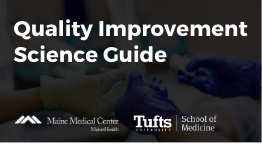 |
The Quality Improvement Science Guide (QISG) provides trainees with the tools and guides necessary to execute an impactful and sustainable quality improvement project. The Guide can be used as either a step-by-step guide in creating quality improvement projects, or as-needed toolkit to access templates and have your questions answered. |










